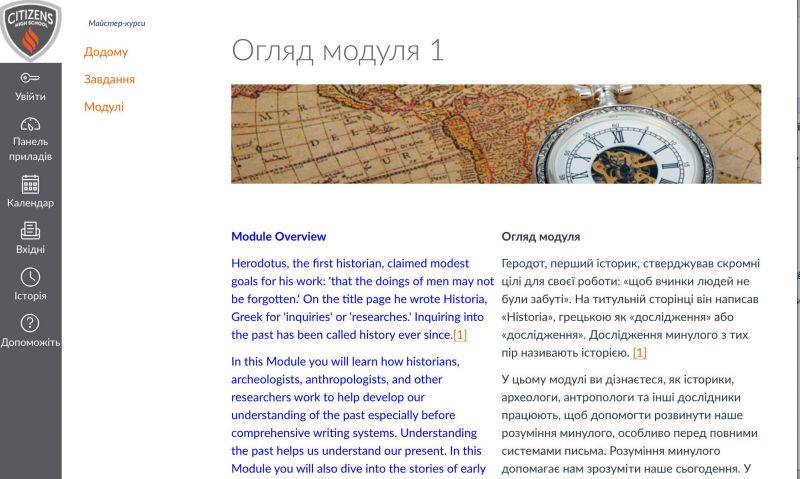
More than half of the world’s refugee children do not receive an education. An American Legion member is bridging that gap for displaced Ukrainians in high school.
On the February morning that Russia invaded Ukraine, more than 7.5 million children lived in the Eastern European nation. In the next several weeks more than half of them fled, with nearly 2 million going to neighboring countries and many more displaced within Ukraine’s borders.
“The situation inside Ukraine is spiraling,” UNICEF Executive Director Catherine Russell said in a statement. “As the number of children fleeing their homes continues to climb, we must remember that every single one of them needs protection, education, safety and support. The war has caused one of the fastest large-scale displacements of children since World War II. This is a grim milestone that could have lasting consequences for generations to come.”
American Legion member James Etter watched the devastation unfold a world away. A member of American Legion Post 177 in Fairfax, Va., Etter thought of the best way that he could help — providing an education to high school-aged children escaping the conflict.
Etter is both an educator and entrepreneur. The retired Marine Corps aviator served a tour as an enlisted Marine in Vietnam before commissioning and attending the Naval Fighter Weapons School. Etter founded the American Military University (AMU) from a picnic table in his basement and later reorganized AMU into the American Public University System (APUS) — one of the largest online higher education institutions. He is currently the CEO of Citizens High School — a fully accredited online high school. Now, he is using his expertise in online learning systems to bridge the education gap Ukrainian refugees are facing.
“What we want to deliver is an online high school — completely free of cost — to these refugees,” he said.
Etter reached out to the Ukrainian Embassy and briefed a team from the Ukrainian Ministry of Education and Science. Minister Serhiy Shkarlet approved the initiative. Etter and Citizens High School launched the Ukrainian Refugee Online Academy.
“This will support the continuity of education for students who are temporarily displaced abroad,” Shkarlet said.
The free “bridge high school program” allows Ukrainian refugees to continue their high school education anywhere, until they return home to their school in Ukraine or relocate to a high school in another country. The courses are available 24/7 in a side-by-side English and Ukrainian format. They can even be accessed from a mobile device like an iPhone, enabling students to stay engaged wherever they are located. The courses are taught by a volunteer Ukrainian and Ukrainian-speaking faculty.
“This platform is especially useful to students who do not have the opportunity to continue their studying in the language of a country they are temporarily in,” Shkarlet added. “This will allow us to easily return to studying in Ukraine immediately after our victory.”
The immediate impacts of war are visible. Lives are stolen too soon, cities are leveled, people starve from food shortages in besieged cities. In the fog of war, continuity of education becomes an afterthought. But what happens when a large portion of a nation’s generation loses access to education? The socioeconomic impacts are staggering.
A 2016 report by the United Nations High Commissioner for Refugees (UNHCR) shows that the barriers refugee children face when trying to access education increase as they get older. According to the report, 84% of children around the world receive a secondary or high school education. Only 24% of refugees have the same opportunity. Less than 3% are able seek higher education. Lack of funding for refugee students at the high school level is one of the biggest hurdles these students face — and what makes initiatives like Etter’s efforts to provide academic support to Ukrainian refugee students so critical.
“Our goal,” says Etter, “is to help preserve the futures of these students through an education without walls or borders. If we can make the smallest impact on the collateral damage these students will suffer in war, then that is what we will do.”
To learn more about the Ukrainian Refugee Online Academy, click here.
- Education

